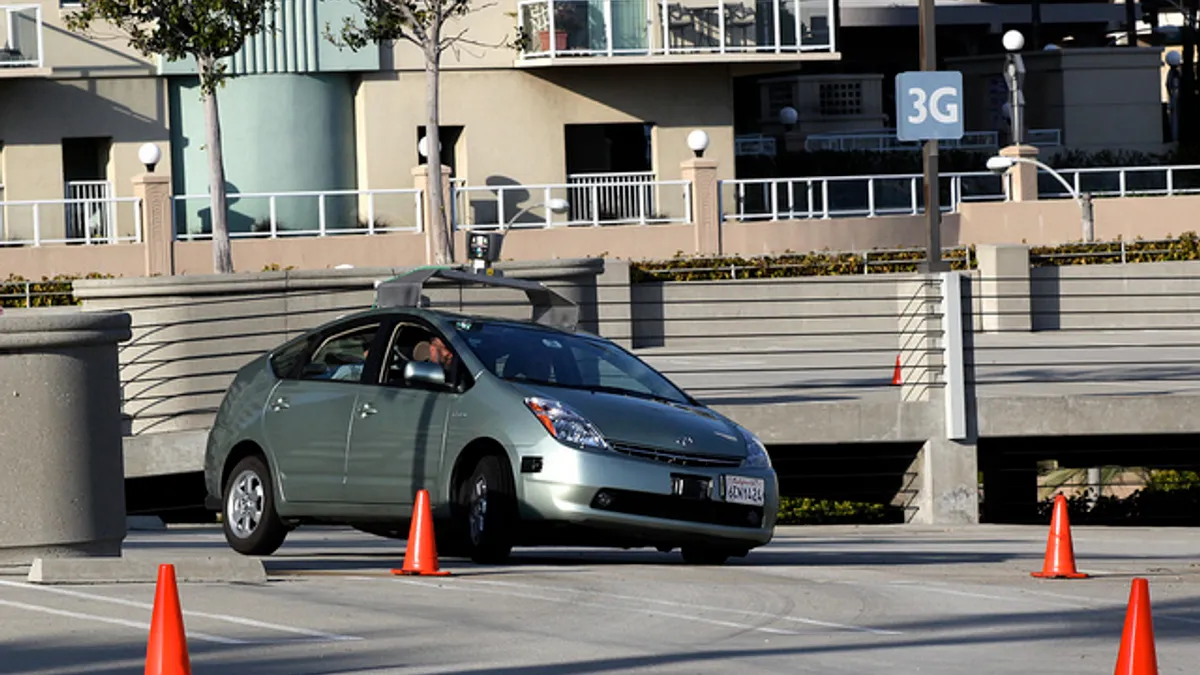Dive Brief:
- The U.S. Department of Transportation (DOT) on Thursday announced a new advisory committee focused on advancing and regulating inter-modal automation.
- The new 25-member committee — co-chaired by General Motors Chairman and CEO and the Mayor of Los Angeles — will meet for the first time January 16, 2017 to share best practices, challenges and opportunities in automation.
- The committee will also identify key infrastructure needs for the country as it prepares to support 70 million more people and an over 40% increase in freight-ton volume within the next 30 years.
Dive Insight:
The DOT has been busy building up the institutional infrastructure to develop new rules on automation, even as the Obama Administration signs off.
In the past six month the department released a new proposed rulemaking mandating the addition of V2V technology within all new light vehicles, established guidelines for states to regulate self-driving vehicles and created a new advisory committee on "automation in transportation." The DOT's latest action — a highly unusual move given the next administration is set to begin within days — further highlights the perceived future importance of automation in transportation.
Perhaps most importantly, however, a quick look at the committee members signals the wide scope and challenge of autonomous technology as well as its expected impact on the supply chain.
Executives from FedEx, Amazon, Hyperloop One, AFL-CIO and the American Trucking Associations represent the logistics industry's interests. The members also include carmakers (General Motors), automotive suppliers (Delphi), academics, drone providers (Zipline), ride sharing services (Uber, Lyft), rental car companies (Zipcar), insurance providers (State Farm Insurance) and policy experts alike.
Further, based on President-elect Donald Trump's pledge to support infrastructure development and appoinment of Washington-insider Elaine Chao, it's likely that the committee will not just withstand the transition, but play a key role in the next administration's policy.













